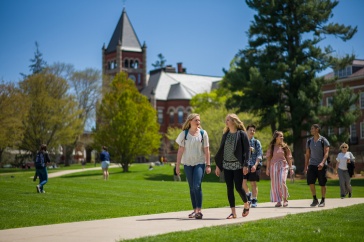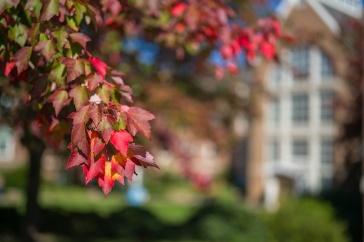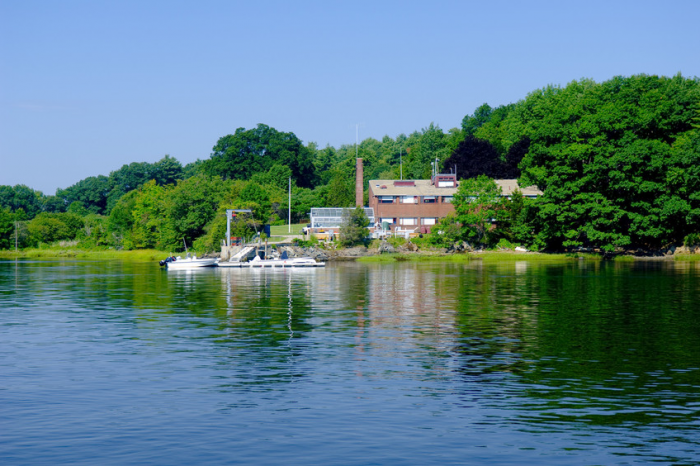
If you think your classroom experience at UNH is limited to a, well, classroom — think again. Whether your interests are marine ecology or dairy management, nursing or tidal patterns, there are places on UNH’s campus and beyond that let you get out of the traditional classroom setting and get hands-on work experience. Here are some of UNH’s most interesting “classrooms.”
1. Marine Laboratories
The Jackson Estuarine Laboratory (JEL) is located 5 miles from UNH’s Durham campus at Adams Point on the shores of one of the biggest estuaries in northern New England, the Great Bay Estuary. Students taking courses in the School of Marine Science and Ocean Engineering use the well-equipped facilities of the JEL to study coastal ecosystems. Students can also get hands-on research experience at Shoals Marine Laboratory, located on Appledore Island at the Isles of Shoals about six miles off the coast of Portsmouth. You don’t even have to go out to sea to study wave and tidal patterns. In fact, UNH has an on-campus laboratory, the Chase Ocean Engineering Lab, with state-of-the-art equipment to aid research in ocean engineering, mapping and acoustics, hydrogeology and hydrographic surveying.
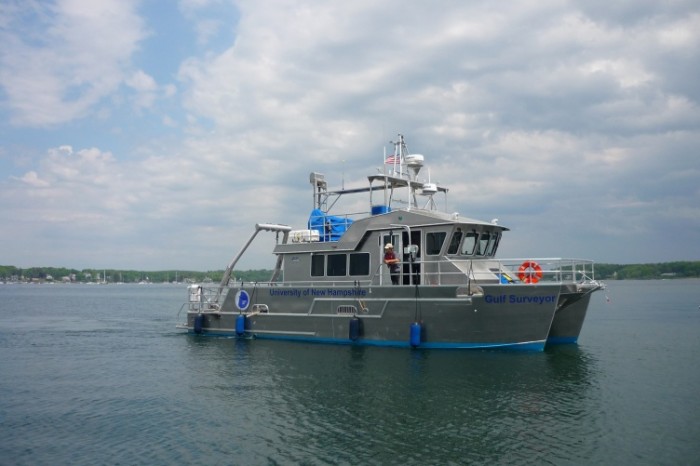
2. R/V Gulf Surveyor
For UNH students who want to study the latest ocean-mapping techniques, this boat is their classroom. The new state-of-the-art research vessel operates year-round up to 100 miles offshore in the waters of the Gulf of Maine. The vessel is the ideal platform for a large variety of estuarine and coastal research and educational activities.
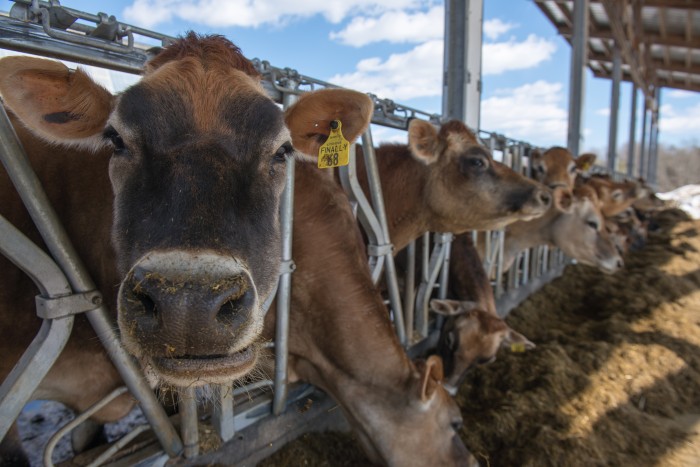
3. Fairchild Dairy Teaching and Research Center
This facility is representative of a typical New England dairy operation, giving dairy management students the opportunity to hone their skills and knowledge. Additionally, the center is home to a herd of cows managed by students in CREAM, or Cooperative for Real Education in Agricultural Management. Other animals at the facility are also sources of research for faculty and students. During the academic year, there are typically about 40 students working part-time at the farm at any given time, either as hourly employees or as participants in the CREAM program.
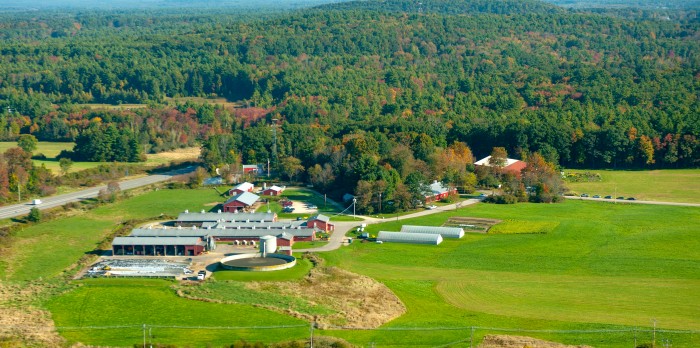
4. UNH Farms
With the broad range of majors and courses of study in the College of Life Sciences and Agriculture (COLSA), UNH has plenty of farms where COLSA students can gain hands-on experience. Kingman Farm and Woodman Farm provide research facilities for students to explore wildlife management, horticultural and agronomic crops and more. For students studying dairy management, the UNH Organic Dairy Research Farm is their classroom. Students also get the chance to dive deep into their studies at the Macfarlane Research Greenhouse.
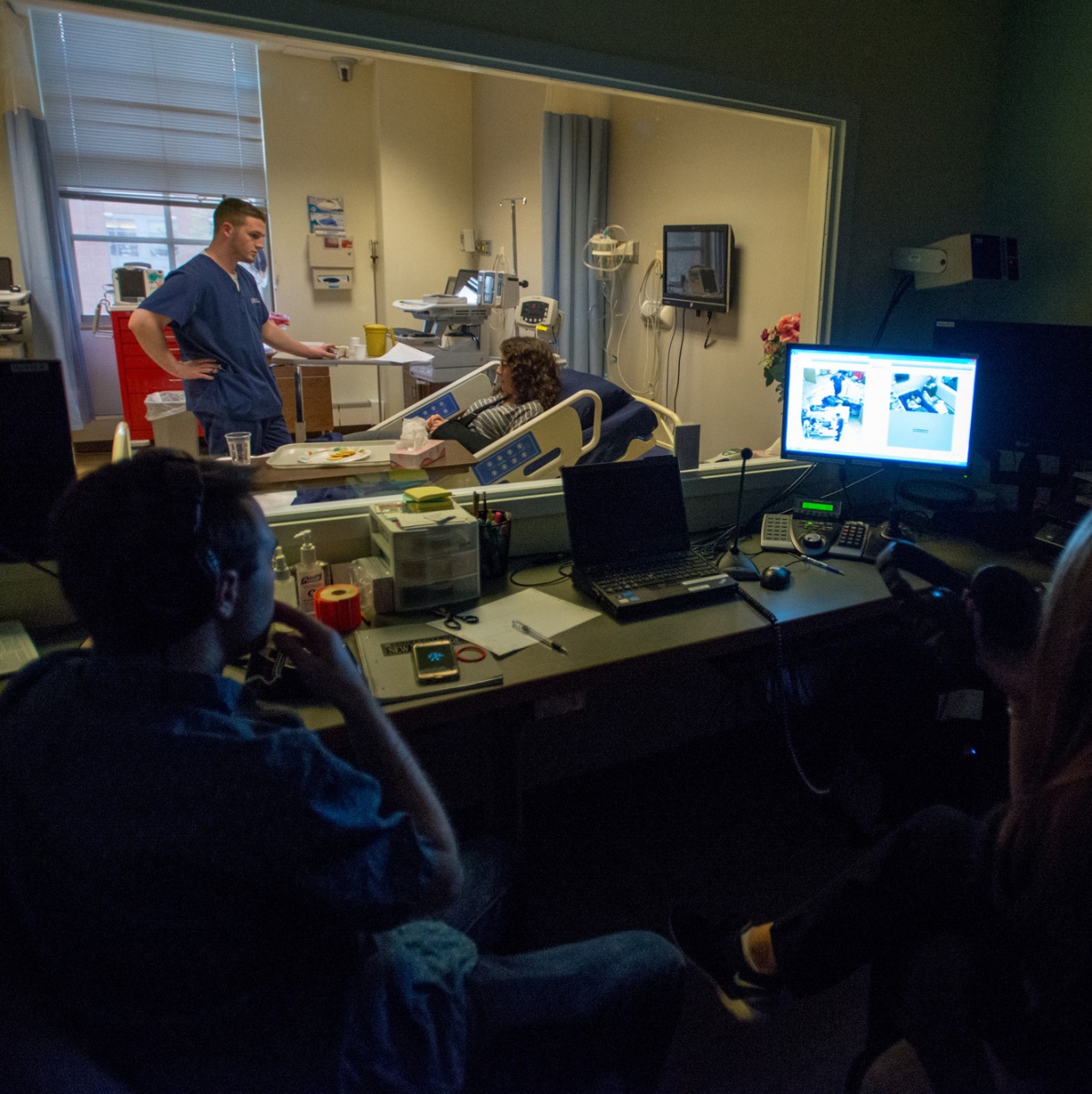
5. Nursing Simulation Lab
For nursing students, hands-on experience is key. The Nursing Simulation Lab, located right on campus in Hewitt Hall, allows aspiring nurses to put their knowledge to the test with mannequins and clinical equipment. This facilitates student learning in managing various patient conditions and nursing procedures and helps students transfer their knowledge from the classroom to the laboratory to the hospital.
-
Written By:
Charlotte Harris ’18 | UNH Tales

















































